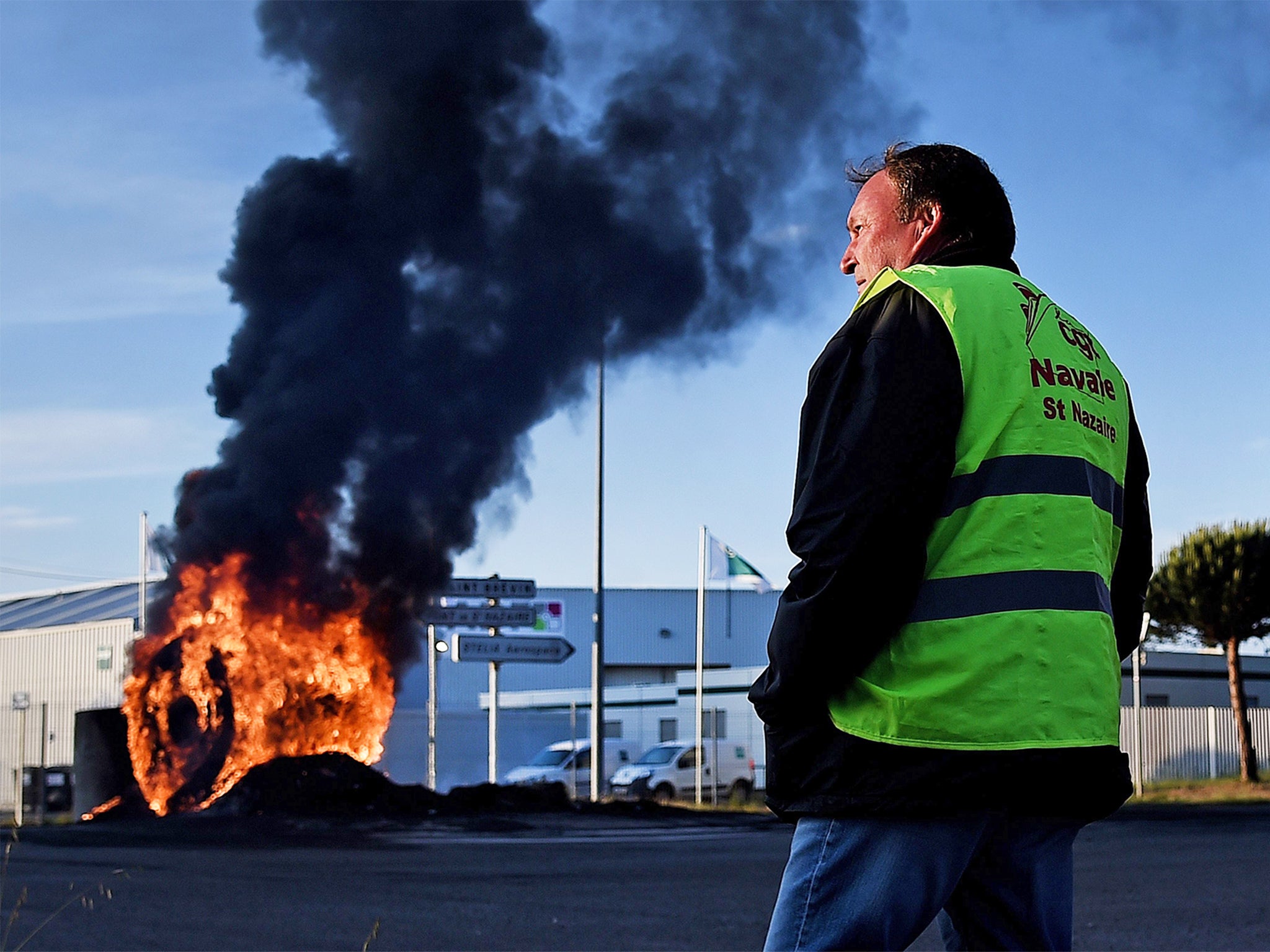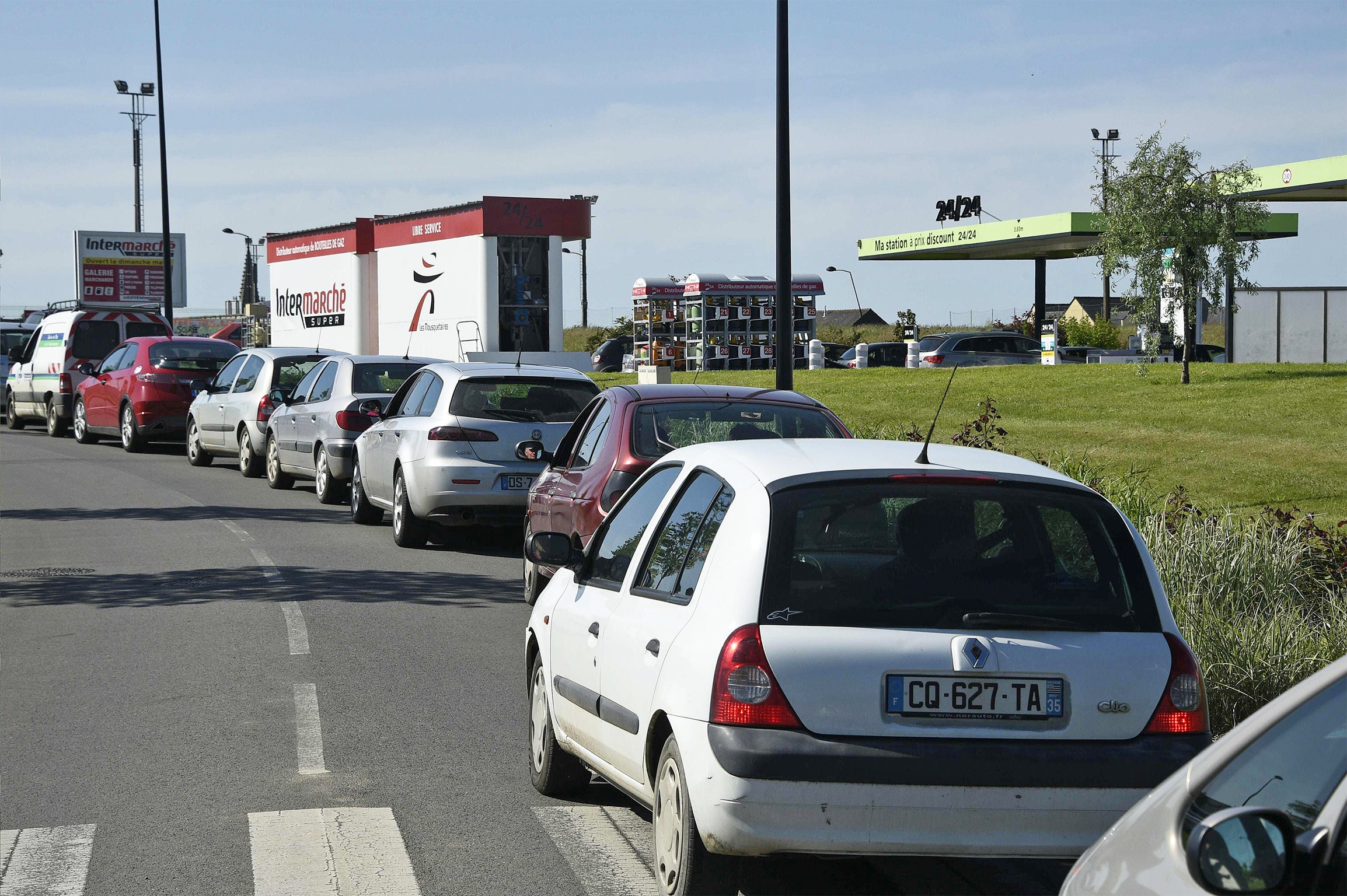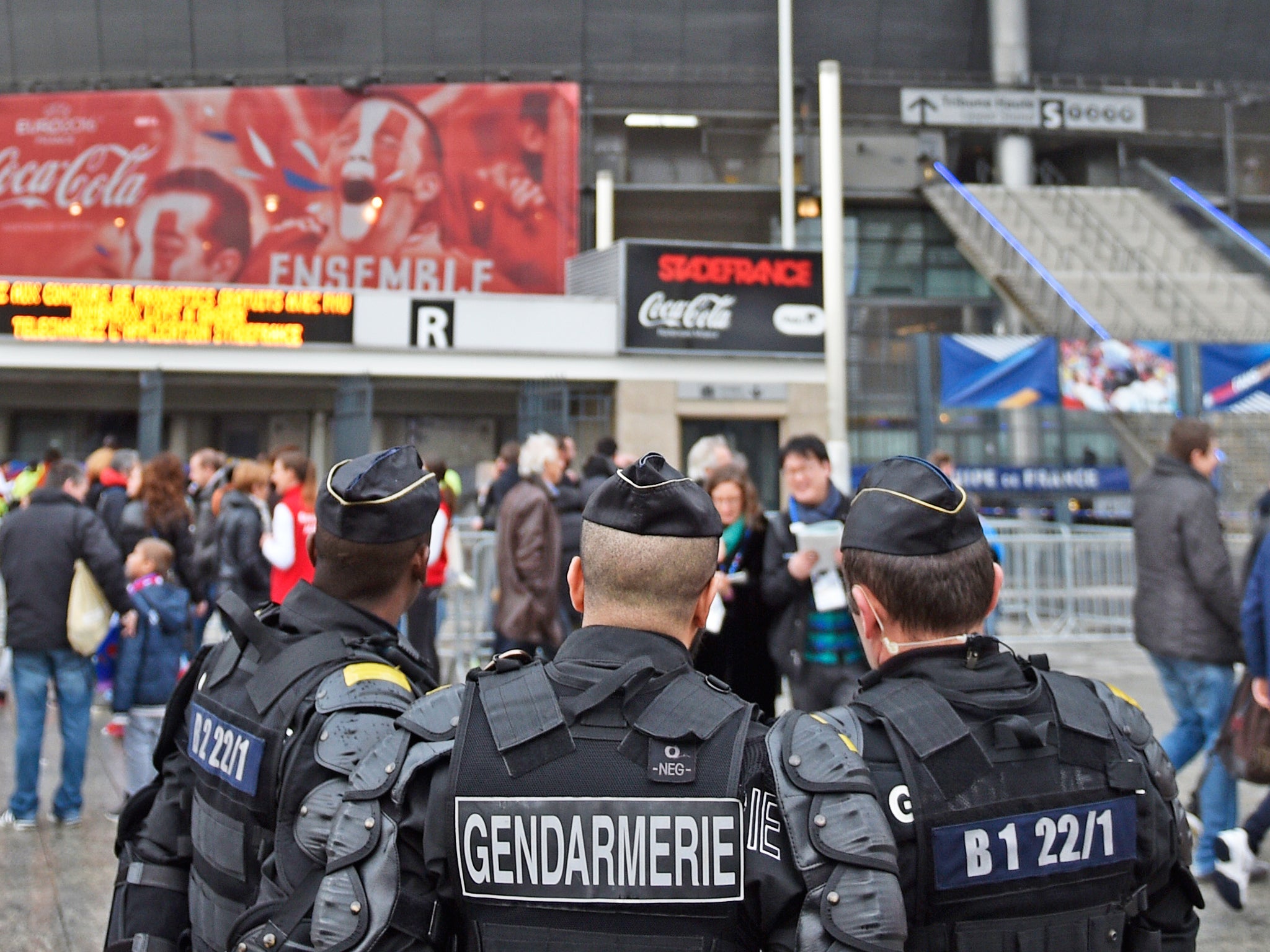French fuel strikes pose threat to Euro 2016 with petrol stations running dry
President Hollande forced to deny his country faces a ‘May revolution’, comparable to the students and workers’ revolt of May 1968

Your support helps us to tell the story
From reproductive rights to climate change to Big Tech, The Independent is on the ground when the story is developing. Whether it's investigating the financials of Elon Musk's pro-Trump PAC or producing our latest documentary, 'The A Word', which shines a light on the American women fighting for reproductive rights, we know how important it is to parse out the facts from the messaging.
At such a critical moment in US history, we need reporters on the ground. Your donation allows us to keep sending journalists to speak to both sides of the story.
The Independent is trusted by Americans across the entire political spectrum. And unlike many other quality news outlets, we choose not to lock Americans out of our reporting and analysis with paywalls. We believe quality journalism should be available to everyone, paid for by those who can afford it.
Your support makes all the difference.A collision between the French government and the country’s largest union federation threatens to paralyse the country two weeks before the Euro 2016 football championship.
One quarter of all French petrol stations were closed or running short of fuel after the militant CGT union federation blockaded refineries and depots in a dispute over reforms of employment law.
After the government sent in riot police to clear pickets from a large refinery near Marseille, the union federation retaliated by calling for strikes in all eight of the country’s refineries.
The Confédération Générale du Travail (CGT) – the largest and oldest of the eight multi-industry trades union federations in France – has also called for an open-ended strike on the Paris Metro from next Thursday and a strike on the French railways from next Thursday. CGT has also called for a one-day strike in power stations on Thursday. CGT also called a strike by air traffic controllers for three days the weekend after next, the weekend before the football tournament begins.
Motorists in large parts of the country, especially in Paris, the west and the north, had to queue or drive for many miles to find petrol. In one typical small town in Normandy, Thury-Harcourt, both petrol stations were dry this morning, resupplied during the day, but dry again by the evening.
The government blamed the shortages on panic buying by motorists and said that – despite the strikes and blockages – normal supplies of fuel were available.

Stations which had fuel were ordered by the government to limit motorists to €30 (£23) of petrol or diesel each.
British motorists travelling to France in the next few days would be well-advised to arrive with full tanks. Some of the worse stricken areas are around the Channel tunnel and ferry ports in northern.
Officially, the government dismisses any possibility of disruption to the Euro 2016 football championship, which begins two weeks on Saturday. Unofficially, there are fears that the dispute could continue for many days and could become more entrenched and even violent.
The French government already faces a nerve-racking time during the month-long competition. More than 500,000 fans from the UK alone are expected to cross the Channel – half of them without tickets. France is still on high security alert following the November jihadist attacks, in Paris.
President François Hollande was forced to deny that France faced a “May revolution”, comparable to the students and workers’ revolt of May 1968. “May 1968 involved millions of people, students occupying universities, workers occupying factories,” he said. “This is just a traditional conflict.”
In other words: “Don’t worry. France is just being France.”
Other politicians and commentators pointed out, however, that the dispute was highly charged and that neither side could afford to back down. Raymond Soubie, former social policy adviser to ex-President Nicolas Sarkozy, said that the CGT had been hijacked by an “ultra-left minority which wants to give the impression of a France steeped in blood and flames”.

The immediate issue is the government's plan to make hiring and firing easier and permit local management-employer deals to take precedence over national agreements and some aspects of national labour law. The Socialist-led government says flexibility is needed to generate jobs and melt France’s stubbornly high 10 per cent rate of unemployment.
Two weeks ago the government short-circuited opposition from a large minority of its own MP’s and started the emergency procedures to push through the reforms by edict.
The dispute has crystallised hatred between the traditional or hard left and Mr Hollande’s reformist or social democratic left, including the second biggest union federation, the CFDT, which supports the labour reform. With street demonstrations and protests waning (though becoming more violent), the CGT has tried to seize the baton of leadership of the radical left.
Mr Soubie and other commenatatoirs said that the union federation was trying to shore up its own weakening influence and had increasingly fallen under the control of a hard-left minority. The CGT points out that opinion polls show that 70 per cent of French people oppose the labour law reforms.
France does not have one “TUC” but eight multi-industry union federations, which have different political persuasions or none. The CGT is the largest (just) but has been losing out both to more militant and more moderate federations. One of the others, Force Ouvrière, has backed the CGT sporadically in its fuel blockage strategy. The others have not.
Since the CGT remains strong in the transport and oil industries, it has decided to use its muscle to provoke a showdown with the Hollande administration. Its only demand is that the employment law reform should be scrapped.
Prime Minister, Manuel Valls, said that there was no question of the government backing down before the “blackmail of a minority”. He said that he would continue to send in police to dismantle “illegal” pickets at refineries and fuel depots.
After riot police used tear gas to scatter picket lines at a giant Total refinery near Marseille, the head of the CGT, Phillipe Martinez, said that the government had made a “declaration of war”. He called for strikes in all eight French refineries, of which only five have been blocked or partially blocked until now.
Join our commenting forum
Join thought-provoking conversations, follow other Independent readers and see their replies
Comments